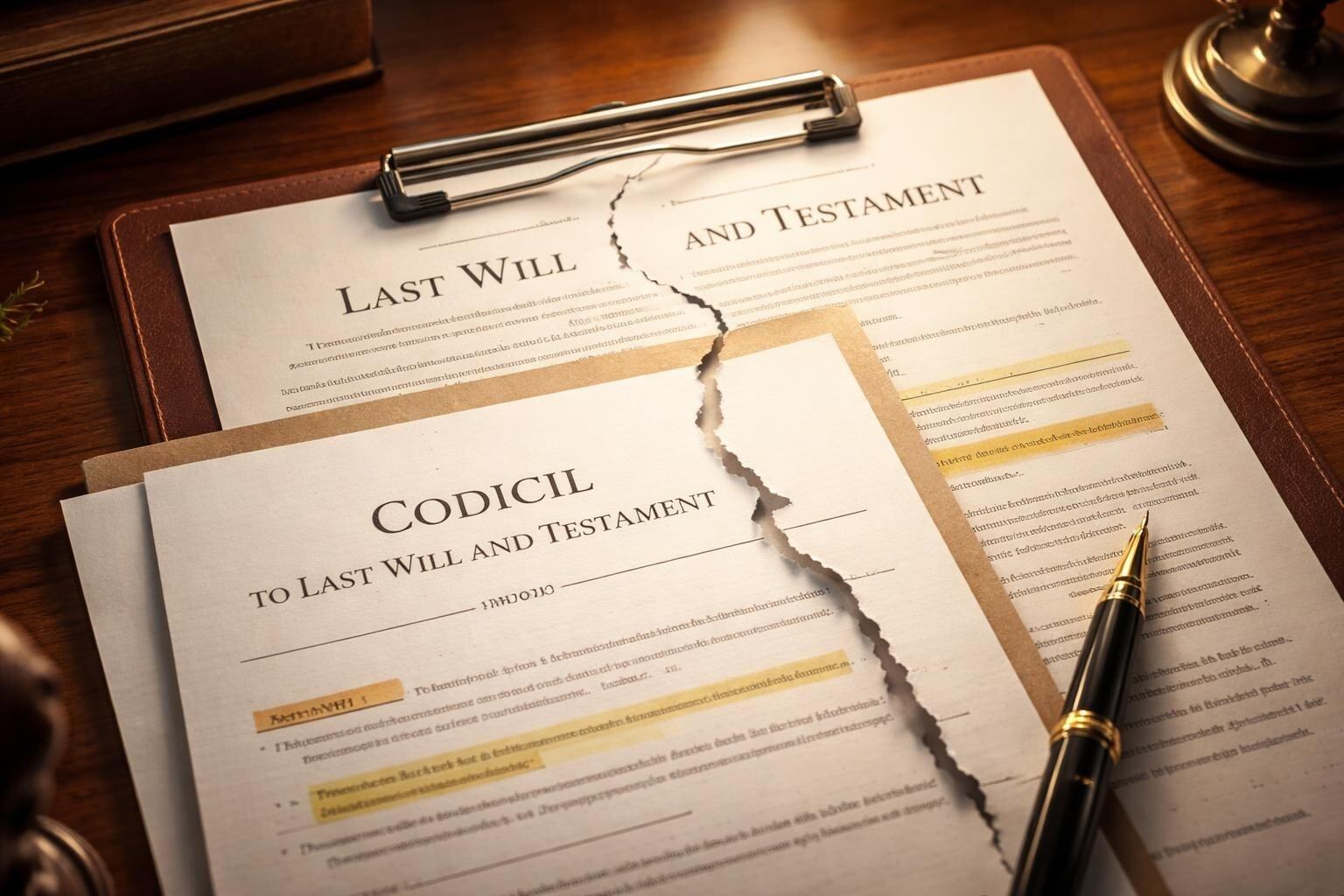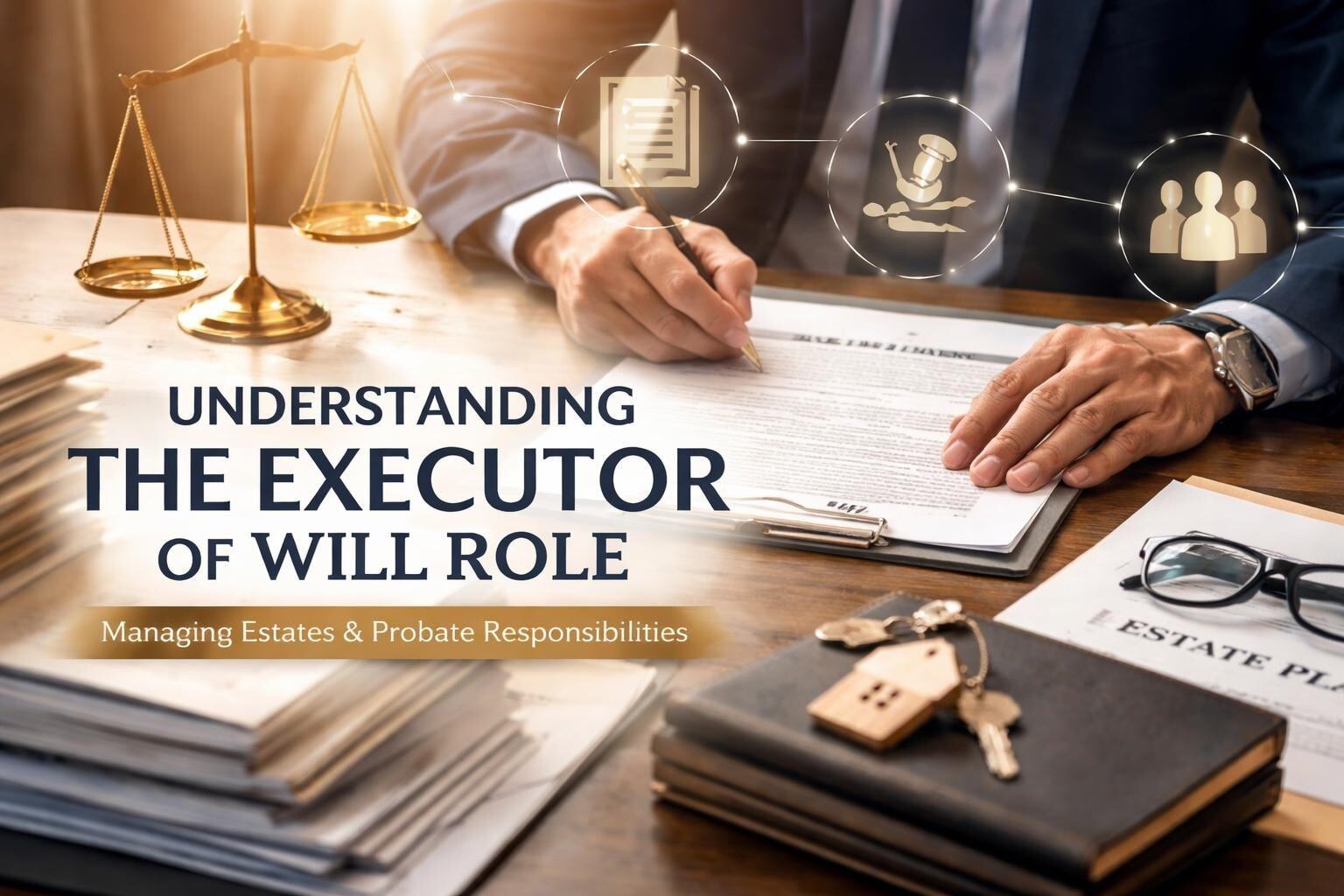Ensuring Your Wishes: A Deep Dive into the Execution of Will
Will is a written document through which a testator makes known their wish regarding handling their property after their death. A will ease the family and the person writing it to avoid future conflict.
However, there are specific requirements, which, if not fulfilled, make the will null and void. Therefore, it is vital to seek advice and make a legally binding will for family members.
Likewise, the execution of the will is the process of making a last will valid. The legal requirements are essential to make it valid and safeguard against fraud or inaccuracy.
So, if you plan to execute your will but need to know where to start, we have your back. This article will inform you about the details required to complete your valid will. Therefore, keep reading to learn more about the execution of will.
Execution of Will Requirements
Execution of will has specific legal requirements, and a will is determined invalid if any requirements are not fulfilled. Therefore, if you plan to make a will, keep in mind to complete the below details to make it legally binding.
- Having Capacity
First, you can only sign your will if you have the legal capacity. A general term for capacity is being of sound mind. It required you to know and understand what property you own, family relationships, and the impact of your will on these relationships.
Moreover, this is not an issue, as you can easily make a will even if you are sick. However, capacity is a highly contested and weak area where specific relationships take advantage after death.
Therefore, if you think that someone may look to contest capacity, seek your lawyer’s help.
- Having Witness
You will need at least two adult witnesses to sign the final will. Moreover, these witnesses should not be beneficiaries of your will. Hence, you will need two adult persons to sign your will who will not get anything from your property.
Furthermore, select your witnesses wisely, ones who are likely to stay around when you die, since probate court could summon them after your death.
Therefore, a valid will always require two signatures from witnesses.
- Signing the Will
You can take a print of the final draft of your will, read it carefully to fully understand it, and ensure to omit any errors or mistakes. Then, you can confirm to your witnesses that you are satisfied with the draft and ready to move forward with the execution of the will.
Here are a few steps to finalize your will.
- Before signing the will, ensure you fully understand every word and that it reflects your wishes. You can talk to your lawyer for advice on any point that needs clarification.
- When you feel comfortable and understand your will is acceptable, gather your witnesses to sign the document. Although some states do not require signatures from all, it is a good practice to avoid possible future ambiguities.
- You are not bound to disclose your will to your witnesses; however, to make them aware, you should call it void by saying, “This is my will.” It will establish the declaration of the document.
- Put your initials on all the pages and ask your witnesses to do the same. It will help your will to remain intact, and the chances of adding a new page are minimized.
- Sign off the document on the last page and mention your date and name. Then, ask your witness to sign the file. It is crucial to have your name printed on the last page of the document.
Once you sign off the file, you have successfully executed your will.
- Submission to Probate Court
The nominated executor submits the will to the relevant probate court. Generally, it is submitted in the territory where the estateholder passes away.
- Will Authentication
Upon submission of the will, the court will establish its authentication. Authentication requires the court to check the documents and affix the stamp proving their authenticity, making it permissible in financial institutions.
- Execution of Will
Once the court authenticates the will, it is time to settle the estate; this is where the executor comes into action. They will gather a list of assets, appraise their value, and inform beneficiaries.
Although it is more complex than it may seem, executing will take time and effort.
Key Points
Before finalizing your final will, remember the key points, as they will help you stay updated about the legality and execution of your wishes.
- Make sure to put your initials and signatures right beneath the printed text; it will help prevent confusion and document replacement.
- Only competent adults can become witnesses and ensure they are not getting anything from your will to avoid a conflict of interest.
- The person responsible for executing the will must know where to locate it when the time comes.
- Photocopies of the will are allowable; however, keep the original secure and produce when probate occurs.
- Destroy all out-of-date wills.
- Make sure to make a new will in case of a new marriage, as pre-marriage will become invalid.
- Keep on reviewing your will from time to time to make necessary amendments to reflect your wishes.
Frequently Asked Questions
How can I execute my will?
You can follow the below steps to execute your will.
- Print completed Will
- Gather your selected witnesses
- Put your initials at the bottom of each page
- Sign the final page
- Instruct your witnesses
- Store the document
- Complete your estate will
What is meant by the execution of the will?
Execution of the Will is making the testament valid.
What is a probate?
Probate is the process of executing, validating, and carrying out instructions of the will. The estate executor is responsible for carrying out instructions.
Is it mandatory by law to execute a will?
No! The law does not require you to execute a will. However, it is a better option to avoid future mishaps with your family to make a last will.
Parting Thoughts
Execution of will is a sensitive task and should be done under the guidance of a lawyer. Although many people do not opt for a will, it is beneficial.
However, there are specific requirements to make it a valid will. You must draft, study closely, involve two witnesses, and sign the document to make it legally binding.
Moreover, fraudsters tend to take advantage of the capacity to be sound when making a will. Therefore, we recommend you take all necessary action involving witnesses and lawyers while finishing your will.
Likewise, it is essential to sign each page of the will, both by the person himself and witnesses, to avoid manipulation of the document in the future.
We hope you have gathered enough information to execute the will and will seek professional advice before starting the procedure. Please leave feedback in the comments section.

Michael Lester
I spent years flying Marine Corps combat missions believing I understood America’s role in the world. Today I work in national security and cybersecurity, helping organizations understand risk, resilience, and the systems we rely on. My writing continues the same mission—bringing clarity to complex issues and inviting people to look past slogans so we can understand who we are, what we do in the world, and why it matters.



